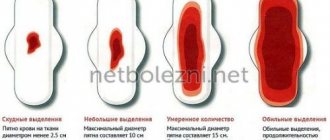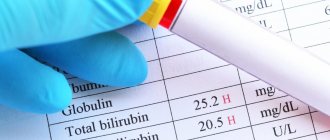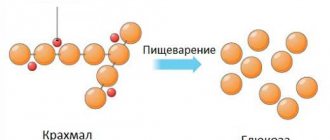What are the reasons for heavy periods?
If your periods are heavy, long and painful every time
This may be due to the presence of pathologies and changes in the body that you are not aware of.
Hormonal imbalance
The female body secretes the hormones progesterone and estrogen, which regulate the menstrual cycle. Excess estrogen can cause the lining of the uterus to thicken, which in turn causes heavier bleeding during menstruation.
Ovarian dysfunction
The condition when the ovaries do not release an egg (ovulation does not occur) during the menstrual cycle is called anovulation. This occurs because the body does not produce progesterone as during a normal cycle.
Bleeding disorder
Between 10 and 30% of women with heavy periods suffer from bleeding disorders, which can make it difficult to stop bleeding.
Uterine polyps
Polyps are small benign growths in the uterus that can increase the amount of blood released during menstruation. May also cause minor bleeding between cycles and after penetrative intercourse. Sometimes polyps can develop into malignant tumors, especially in older women, so it is recommended to remove them.
Uterine fibroids
Uterine fibroids are a benign tumor in the muscle layer of the uterus. Most often they appear in women of late reproductive age (35-45 years). This is a very common condition that affects about 80% of women during their lives. Menorrhagia is most often caused by large or numerous fibroids. Most often, fibroids are small and are not accompanied by any symptoms.
Premenopause
This period is characterized by hormonal changes before menopause, and many women notice an increase in the volume of menstruation
Recovery after childbirth
Often after childbirth, periods can be very heavy. In some women they gradually become the same as they were before childbirth, but in many they remain abundant.
Endometrial hyperplasia
Some women may develop a condition in which the endometrium of the uterus becomes too thick. This condition is called endometrial hyperplasia and can cause heavy, prolonged bleeding with blood clots. It most often occurs after menopause, but it sometimes occurs in younger women.
Adenomyosis
Adenomyosis is a condition in which the endometrium of the uterus grows into the muscular and intermediate layers of the uterus. Most often occurs in women of childbearing age (25-35 years). Inflammatory processes occur in places where the endometrium grows. This condition is often difficult to diagnose, and the causes of its development are poorly understood.
Other diseases
Heavy periods can also be associated with endometroiosis, thyroid disease, pelvic inflammatory disease, kidney disease, liver disease and cancer.
Is it possible to cure uterine bleeding with folk remedies?
Uterine bleeding is a symptom of a huge variety of diseases and requires especially careful attention due to the likelihood of serious consequences for life and health. Any discharge of blood from the vagina that is not associated with normal menstruation should be taken as a reason for an urgent visit to a gynecologist.
Having noticed signs of uterine bleeding, many women try to treat themselves, resorting to traditional medicine, which can lead to tragic consequences. Folk remedies against uterine bleeding, such as infusions of nettle, viburnum, horsetail and shepherd's purse, do demonstrate some effectiveness, but are used only as an addition to the main therapy after consultation with the attending physician.
Once heavy periods
Miscarriage
Miscarriages can often occur before a woman even knows she is pregnant, because in the very early stages they can appear as heavy periods.
Ectopic pregnancy
An ectopic pregnancy occurs when a fertilized egg implants outside the uterus. Symptoms of an ectopic pregnancy can easily be confused with heavy menstruation. This condition can be fatal.
If you are pregnant and experience heavy bleeding, you must call an ambulance!
Non-hormonal intrauterine device
Heavy periods are a common side effect of using non-hormonal IUDs.
Medicines
Blood thinners and anti-inflammatory drugs may cause heavier menstrual bleeding.
Please remember that heavy menstruation is not always explained by some kind of pathology. Each woman's menstrual cycle is unique and heavy bleeding may simply be a feature of your body. However, large blood loss can cause excess iron loss and anemia. With mild anemia, you may experience fatigue and weakness. More severe forms can cause dizziness, headache, and rapid heartbeat. Heavy periods are often accompanied by severe uterine cramps, which cause severe pain (dysmenorrhea). Severe pain cannot be tolerated and this condition may require medication.
First aid for uterine bleeding
It is impossible to cure the pathology on your own, as well as to identify the cause of this condition. Therefore, you need to contact a gynecologist and undergo a series of studies: tests and ultrasound.
In case of severe bleeding, when the blood flows without stopping, you need to call an ambulance. Before the doctors arrive, you need to provide first aid to the patient. It consists of the following actions, you can:
- Lay the patient on a flat surface, placing a pillow under her feet - they should be approximately 20 - 30 cm above body level;
- Apply a cold object (for example, a bottle of cold water) to the lower abdomen;
- The patient should be given sweet drinks.
If you are pregnant, you should call an ambulance in any case.
What can you do at home to ease heavy periods?
- If you are in pain, take a non-steroidal anti-inflammatory drug. You can also apply a heating pad to your stomach—the heat eases cramps.
- Iron-rich foods and iron-containing supplements can help ease heavy menstruation and cope with iron deficiency in mild forms of anemia.
- Foods rich in iron include beef, liver and other offal, turkey, spinach, fish, pumpkin seeds, dried apricots, white beans, cocoa beans, and champignons. It also makes sense to increase your vitamin C intake because it helps with iron absorption. A lot of vitamin C is found in kiwi, bell peppers, strawberries, citrus fruits, broccoli, tomatoes, kohlrabi, pineapple.
- Drink enough water.
If you have heavy bleeding for several days, your blood volume may decrease significantly. Drink 4-6 extra glasses of water to maintain your blood volume.
When to suspect pathology
There are a number of signs that can indicate to a woman that something is going wrong in her body. A woman doesn’t need her period to miss out on life for a week. This is a natural process that should be easy and painless.
- Bleeding lasts longer than normal. The normal duration is 3 to 5 days.
- Blood is lost profusely, a woman uses more than 2 packs of sanitary pads (100-150 ml of blood loss).
- Strong, unpleasant odor of discharge.
- Severe pain. It hurts to touch the stomach; every movement increases the pain.
- The cycle is not stable.
- Menstruation comes either too often or late. Normally, the duration of the cycle from 1 day of menstruation is 26-30 days.
If there is at least one point that matches, this is a reason to visit your gynecologist and share the problem.
If a woman is bothered by spotting with blood for several days before her period, the beginning of the cycle is considered from the first day of the appearance of this discharge.
Only a detailed study, including tests, smears, ultrasound and examination, will help the doctor draw conclusions about women’s health.
Doctors' recommendations
There are general recommendations to prevent problems. Gynecologists advise not to ignore the problem, considering it a feature of the body. Even if you discover one or two symptoms from the list, you should make an appointment as early as possible.
You are allowed to search for information on women's forums and consult with friends. No matter how knowledgeable they may be, this does not mean that you can take pills and resort to traditional methods. And it won’t go away on its own. Don't wait and think that it won't affect you.
Keep a menstrual diary. In it, write down when your period started and ended, how you feel, and the nature of your discharge. You can put crosses in a small calendar, which can be filled out in any convenient place.
Menstruation with small clots is normal. Their presence does not indicate pathology. If during menstruation clots that look like meat come out and are accompanied by pain, it means that you have caught an infection or a disease is developing. Do not self-medicate - it is dangerous. Only a doctor can make an accurate diagnosis and prescribe the correct treatment.
Where to go for diagnosis and treatment of menorrhagia and metrorrhagia in St. Petersburg?
Help with uterine bleeding depends on the strength of the pathology, the cause of the bleeding, and the condition of the woman. The Diana Clinic has everything to diagnose and treat any menstrual disorders. With us you can undergo a set of tests and undergo an expert ultrasound for only 1000 rubles. The type and cost of tests are determined depending on the expected diagnosis.
If you find an error, please select a piece of text and press Ctrl+Enter
How to prevent disease
To prevent the onset of the disease, during pregnancy you need to regularly visit an obstetrician-gynecologist, follow a diet, control your weight, and do physical exercises for pregnant women.
Hormonal disorder
Hormones are responsible for the process of menstruation. In the first phase - estrogen, in the second phase - progesterone. Under the influence of estrogen, the uterus forms the endometrium. Progesterone strengthens the formed endometrial layer, and when fertilization does not occur, the hormone provokes menstruation.
With more estrogen than necessary, the uterus can form an additional layer of endometrium; a lack of progesterone will cause a delay in menstruation and scanty discharge.
If the hormonal balance is disturbed, the periods are dark, scanty or, conversely, abundant. The cycle is irregular, clots are constantly coming out. My stomach hurts, my temperature rises, I feel nauseous. Hormonal disruption can also occur during menopause.
Stress
A large load on the nervous system also causes clots to appear.
Try not to overwork, sleep enough hours, don't swear, avoid conflicts and think positively.
When tissue-like pieces come out during your period, it can signal cancer in the uterus and pelvic inflammatory disease.
Diagnosis of the problem
At the appointment, the doctor should ask you about your cycle, at what age it began, whether there have been pregnancies or abortions, how long the cycle lasts, how heavy your periods are and whether there are any clots. How much discomfort do you experience? Before your visit, it makes sense to count the number of hygiene products you use per day and over the entire period. After consultation, a number of tests are prescribed:
- blood test for hormones, iron and coagulation;
- Pap test - a painless smear from the cervix to check for cell changes. In serious cases, an intrauterine biopsy is prescribed (the procedure takes about 15 minutes and is well tolerated);
- Ultrasound.
Based on these initial examinations, additional examinations may be prescribed, for example hysteroscopy (a minimally invasive method using an optical tube).










